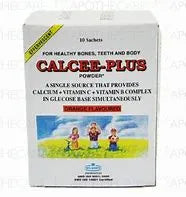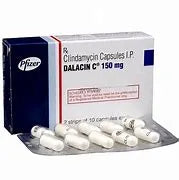This combo tablet, blending amlodipine, hydrochlorothiazide, and valsartan, is a familiar sight in Pakistani pharmacies, from bustling Karachi markets to clinics in Lahore, often prescribed to tackle stubborn high blood pressure. It works through three different paths to ease heart strain and improve blood flow. This profile covers its essentials—how it functions, its uses, side effects, and doctor insights—based on local standards like those from the Pakistan Medical and Dental Council (PMDC). It’s straightforward info to understand, not a prompt to use without a doctor’s advice.
Basic Product Details
- Form and Strength: Tablets containing amlodipine (10 mg), hydrochlorothiazide (25 mg), and valsartan (160 mg).
- Packaging: Strips of 10 or 14 tablets, sealed for Pakistan’s humid climate.
- Pricing: Roughly PKR 30-50 per tablet; a 10-tablet strip costs about PKR 300-500, depending on the pharmacy or brand.
- Brands in Pakistan: Exforge HCT or PMDC-approved generics.
Ingredients
- Active Ingredients: Amlodipine (10 mg, calcium channel blocker), Hydrochlorothiazide (25 mg, thiazide diuretic), Valsartan (160 mg, ARB).
- Excipients: May include lactose, cellulose, or magnesium stearate (check packaging for specifics).
Drug Class
Calcium Channel Blocker + Thiazide Diuretic + Angiotensin II Receptor Blocker (ARB).
How It Functions
Amlodipine relaxes blood vessels by blocking calcium entry into smooth muscle cells, reducing resistance. Hydrochlorothiazide flushes out excess sodium and water, lowering blood volume. Valsartan blocks angiotensin II, a hormone that tightens vessels, promoting relaxation and reducing aldosterone, which helps control fluid. Together, they tackle blood pressure from multiple angles. In Pakistan’s clinics, this combo is valued for managing tough hypertension cases, especially when single drugs fall short.
Common Applications
From local medical practices, this combo is linked to:
- Treating high blood pressure (hypertension) to lower heart attack/stroke risk.
- Relaxing blood vessels and improving blood flow.
- Reducing excess body fluid and salt.
- Easing heart strain and supporting cardiovascular health.
- Managing hypertension when other meds aren’t enough.
- Preventing hypertension-related complications like kidney issues.
Dosage Form
Tablet, swallowed whole with water.
Potential Side Effects
Common issues, based on local reports, include:
- Dizziness or lightheadedness.
- Fatigue, weakness, or headache.
- Nausea or stomach pain.
- Increased urination.
- Swelling in legs/ankles or skin rash.
Seek immediate help for severe symptoms like breathing trouble or severe swelling.
Key Warnings and Precautions
PMDC-aligned guidelines note:
- Kidney/Liver: Monitor function regularly; use cautiously in impairment.
- Low Blood Pressure: Watch for dizziness when standing; stay hydrated.
- Electrolytes: Avoid potassium supplements or high-potassium foods unless advised.
- Pregnancy/Breastfeeding: Avoid—can harm fetus or infant; consult for alternatives.
- Diabetes/Gout: Hydrochlorothiazide may raise blood sugar or uric acid; monitor closely.
- Allergies: Avoid with sulfonamide sensitivity (hydrochlorothiazide-related).
- Driving: Skip if dizzy or fatigued.
Regular blood pressure, kidney, and electrolyte tests are advised.
When It’s Not Suitable (Contraindications)
Avoid if you have:
- Allergy to amlodipine, hydrochlorothiazide, valsartan, or sulfonamides.
- Severe liver or kidney disease, or dialysis.
- History of angioedema from similar drugs.
- Low blood pressure or recent heart attack/unstable angina.
- Severe hyperkalemia or heart valve narrowing.
- Pregnancy or breastfeeding.
- Gout or uncontrolled diabetes.
Drug Interactions
May interact with:
- Lithium, increasing toxicity risk.
- NSAIDs (e.g., ibuprofen), reducing blood pressure control or harming kidneys.
- Other antihypertensives (e.g., ACE inhibitors), risking excessive low pressure.
- Digoxin, raising levels with hydrochlorothiazide.
- Potassium-sparing diuretics or supplements, causing high potassium.
- Antidiabetics, needing dose tweaks due to blood sugar changes.
Food Interactions
- Avoid grapefruit juice; increases amlodipine levels.
- Limit alcohol; worsens dizziness or low pressure.
- Moderate potassium-rich foods (e.g., bananas, spinach) to avoid imbalance.
- Avoid high-sodium foods to support blood pressure control.
- Space dairy (e.g., milk) from doses to ensure hydrochlorothiazide absorption.
In Case of Overdose
Symptoms like severe dizziness, fast/slow heart rate, or fainting need urgent ER care. Treatment focuses on stabilizing vitals and supporting blood pressure.
Missed Dose
Take as soon as remembered, unless near the next dose. Skip it then, and don’t double up. Consult your doctor if frequent misses occur.
Storage and Disposal
Store tablets at room temperature (20-25°C) in a cool, dry place (e.g., a cabinet, not a bathroom), away from light, moisture, and kids. Dispose of expired tablets via pharmacy drop-off, not by flushing.
Quick Tips
- Take at the same time daily for steady effects.
- Stay hydrated, especially in Pakistan’s heat.
- Monitor blood pressure regularly.
- Inform your doctor about all meds to avoid clashes.
Doctor Review
Cardiologists in Pakistan, from Karachi’s NICVD to Peshawar’s clinics, see this combo as a strong option for tough hypertension, blending three mechanisms for solid control, but they stress kidney/electrolyte monitoring and avoiding it in pregnancy or severe kidney issues.
Laboratory Screening
To monitor effects and health:
- Blood Tests: Kidney function (creatinine, eGFR), electrolytes (potassium, sodium), glucose.
- Blood Pressure Checks: Regular monitoring for control.
- Urine Tests: For kidney health, especially in high-risk patients.
This profile outlines the combo’s role in Pakistan’s healthcare—a clear guide for understanding, not a prompt to use without a doctor’s advice.
Disclaimer: This is product information only, not a prescription or diagnosis. Consult a qualified Pakistani doctor before using this medication to ensure it’s safe. Seek immediate care for severe symptoms like dizziness, swelling, or breathing issues.











Reviews
There are no reviews yet.